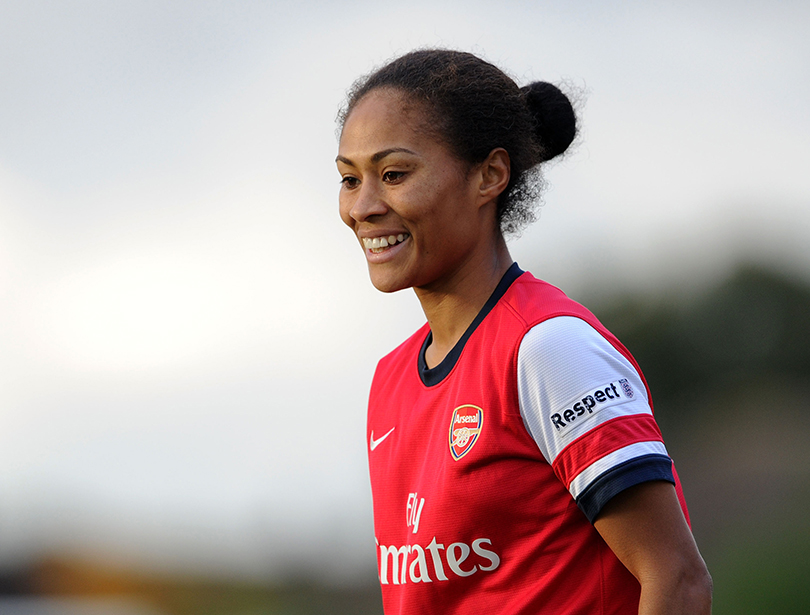
Rachel Yankey became the first player to surpass Peter Shilton’s England record of 125 caps, represented Great Britain at the Olympics and became a European champion with Arsenal.
Growing up though in Brent in north west London, Yankey had to hide her identity, just to be able to play football.
At the age of eight, she shaved off her hair and pretended to be a boy called Ray, joining a team for two years before an opponent found out that she was a girl and she was asked to leave the pitch.
Lack of opportunities
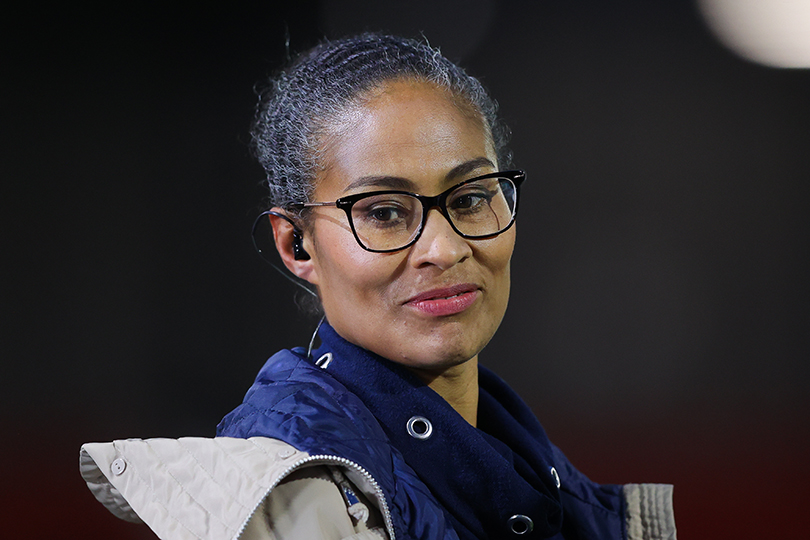
Yankey’s story was indicative of the lack of opportunities for young girls to play football in the late 1980s.
“Yeah, I did have to pretend to be a boy,” she says as she talks to FourFourTwo. “Even in the boys’ game, the manager set up that team because his son didn’t have a place to play football.
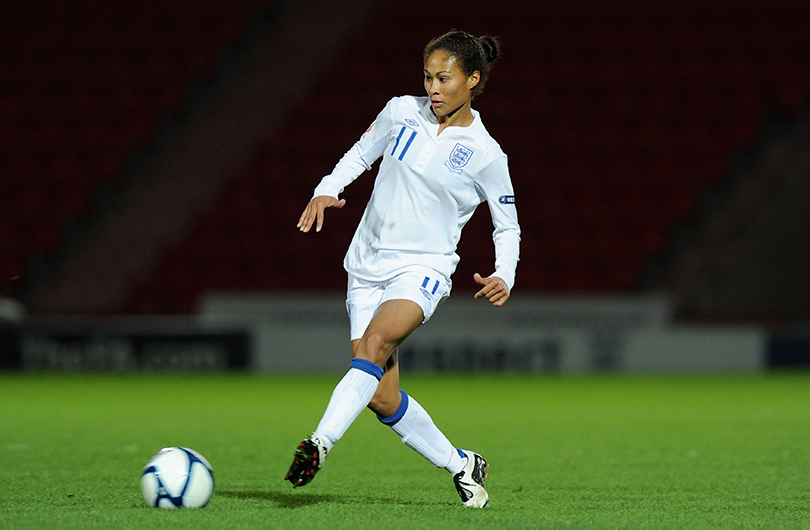
“There weren’t any grass roots teams, so if there weren't any boys’ teams, there definitely weren’t any girls’ teams.
“But my mum used to walk me and my friends down there with the dog, we used to group together, go there and enjoy it.
“I remember representing Brent in the London Youth Games, too, and it felt like a big responsibility, an honour.”
Now, nine years after the end of a career that brought her 129 England caps, Yankey has set up her own foundation to empower inner city girls in London, and give them opportunities to get into football.
“This has come from my experiences of playing, coaching and just growing up in football,” she says.
“There was a lack of opportunities for young girls when I was a kid, and although it’s got better, it’s a lot more visible, there are a lot more grass roots teams and the perception of women’s football and girls playing football has changed, I still think there are barriers.
“I’m not quite sure we’ve improved in terms of having homegrown inner city players coming through and getting opportunities, at whatever level.
“I still think there are many barriers to young girls who live in the inner city London boroughs – it’s quite difficult to get to training centres.”
A plan to help
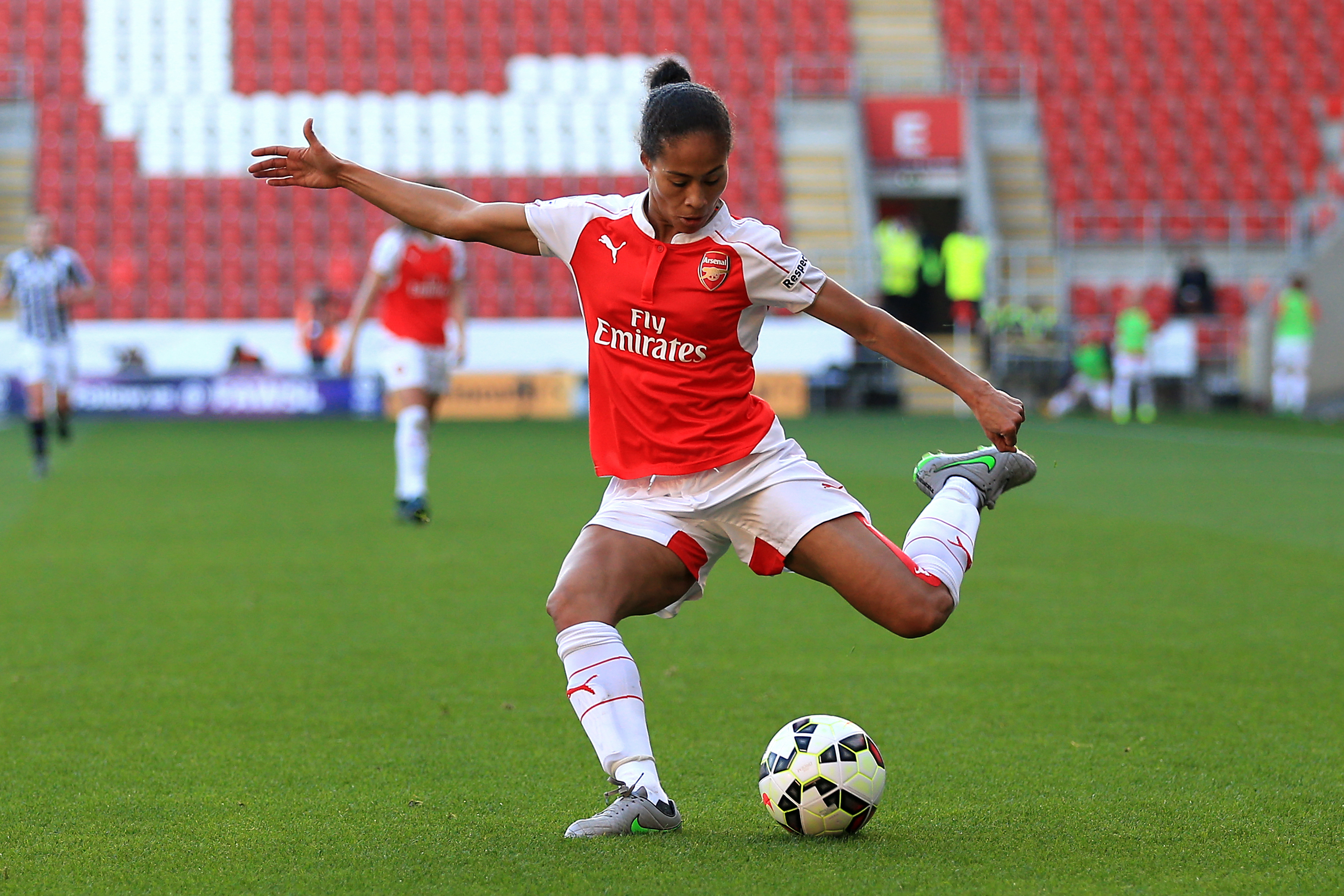
The Rachel Yankey Foundation has created two hubs in Brent and Westminster, where young girls aged 11 to 16 from every kind of background can learn to play and enjoy football via mentorship and coaching, some of it by Yankey herself.
“Many people saw me as a footballer, but we were semi-pro then, so my day job was going into primary schools, working with children and coaching them,” the 45-year-old explains.
“There were many kids who loved football – some were never going to go on and become a footballer, but they still loved it, so I’ve always had a passion for working with young children, allowing them to be able to express themselves and feel free.
“The age group we’re working with, 11 to 16, they might have exams, they need something to be able to take away those pressures.
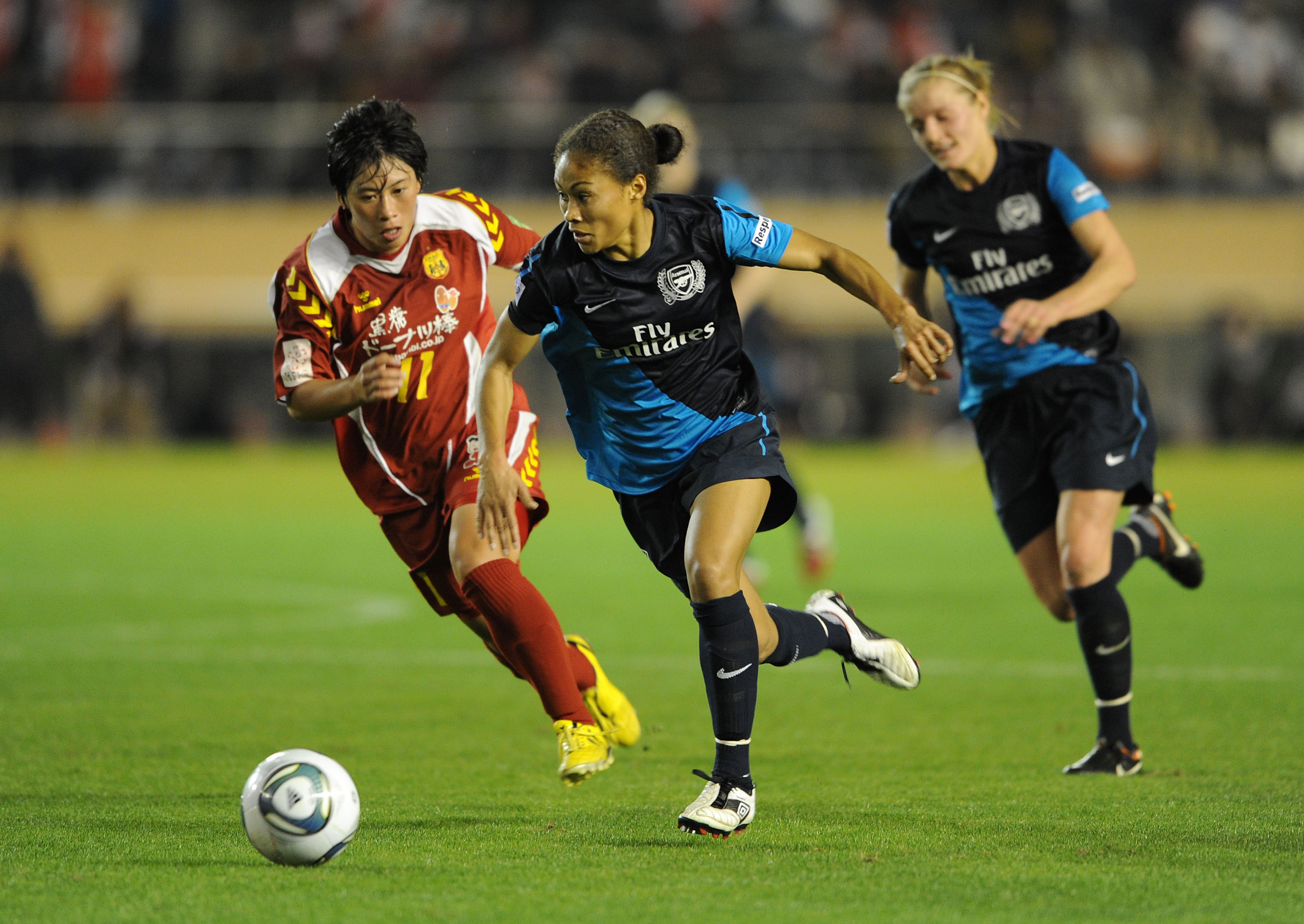
“This is giving girls a safe space where they can become free, play football, learn and get opportunities.
“It’s creating local hubs for the community – people can catch the train or bus, or walk, they don’t have to rely on parents who may be too busy to take them there.
“It’s for girls who share a passion about football, whatever their level, to come down, play football and make new friends. Some of my oldest friends are from playing football at 10 or 11 years old.”
Those friendships remain strong. “I grew up in Brent, and maybe not everyone looked like me,” Yankey says. “But I had a connection with people because of the schools we came from, the areas we grew up in.
“One of my very close friends is Natasha Daly, we grew up round the corner from each other, then played for Arsenal and England – you can really relate to someone because of the area and the community you’re from.
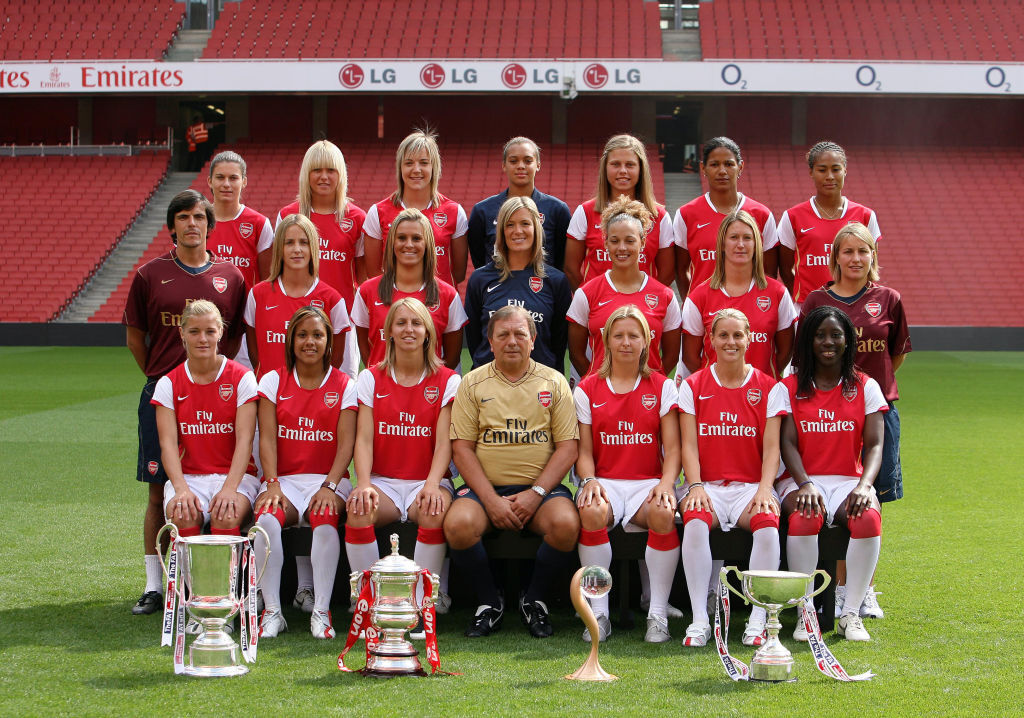
“So this is giving girls the opportunity to follow their passion and play football, and to educate them – there’s more to football than just being a player, you can do journalism, photography, you can coach, it’s exposing them to those opportunities and supporting them with that.
“We’ve done pilot sessions at two venues, working with a range of girls – some had never really played football, some really excelled and were already in academies at the highest level.
“It’s bringing them all together – we’re not a football team, they might already play for a team, we’re not asking them to leave that.
“We just want to support, maybe add extra training sessions and do different things like help with the education side of things.”
For more information, visit rachelyankeyfoundation.co.uk







